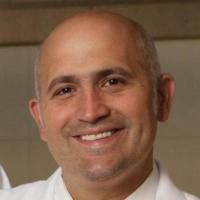Economic evaluation of access to musculoskeletal care: the case of waiting for total knee arthroplasty.
Date
2014-01-18
Journal Title
Journal ISSN
Volume Title
Repository Usage Stats
views
downloads
Citation Stats
Attention Stats
Abstract
BACKGROUND: The projected demand for total knee arthroplasty is staggering. At its root, the solution involves increasing supply or decreasing demand. Other developed nations have used rationing and wait times to distribute this service. However, economic impact and cost-effectiveness of waiting for TKA is unknown. METHODS: A Markov decision model was constructed for a cost-utility analysis of three treatment strategies for end-stage knee osteoarthritis: 1) TKA without delay, 2) a waiting period with no non-operative treatment and 3) a non-operative treatment bridge during that waiting period in a cohort of 60 year-old patients. Outcome probabilities and effectiveness were derived from the literature. Costs were estimated from the societal perspective with national average Medicare reimbursement. Effectiveness was expressed in quality-adjusted life years (QALYs) gained. Principal outcome measures were average incremental costs, effectiveness, and quality-adjusted life years; and net health benefits. RESULTS: In the base case, a 2-year wait-time both with and without a non-operative treatment bridge resulted in a lower number of average QALYs gained (11.57 (no bridge) and 11.95 (bridge) vs. 12.14 (no delay). The average cost was $1,660 higher for TKA without delay than wait-time with no bridge, but $1,810 less than wait-time with non-operative bridge. The incremental cost-effectiveness ratio comparing wait-time with no bridge to TKA without delay was $2,901/QALY. When comparing TKA without delay to waiting with non-operative bridge, TKA without delay produced greater utility at a lower cost to society. CONCLUSIONS: TKA without delay is the preferred cost-effective treatment strategy when compared to a waiting for TKA without non-operative bridge. TKA without delay is cost saving when a non-operative bridge is used during the waiting period. As it is unlikely that patients waiting for TKA would not receive non-operative treatment, TKA without delay may be an overall cost-saving health care delivery strategy. Policies aimed at increasing the supply of TKA should be considered as savings exist that could indirectly fund those strategies.
Type
Department
Description
Provenance
Subjects
Citation
Permalink
Published Version (Please cite this version)
Publication Info
Mather, Richard C, Kevin T Hug, Lori A Orlando, Tyler Steven Watters, Lane Koenig, Ryan M Nunley and Michael P Bolognesi (2014). Economic evaluation of access to musculoskeletal care: the case of waiting for total knee arthroplasty. BMC Musculoskelet Disord, 15. p. 22. 10.1186/1471-2474-15-22 Retrieved from https://hdl.handle.net/10161/15648.
This is constructed from limited available data and may be imprecise. To cite this article, please review & use the official citation provided by the journal.
Collections
Scholars@Duke

Richard Charles Mather
Richard C. “Chad” Mather III MD, MBA is an assistant professor and vice chairman of practice innovation in the Department of Orthopaedic Surgery at Duke University School of Medicine. He is also a faculty member at the Duke Clinical Research Institute. Dr. Mather is a health services researcher and decision scientist with a focus on economic analysis, health policy, health preference measurement and personalized decision-making. His current work focuses on building tools for healthcare consumerism by facilitating measurement and communication of individual patient preferences in treatment decisions. Additionally, he has great interest in health innovation, particularly in developing new care and payment models to foster different incentives and practice approaches. He was a health policy fellow with the American Academy of Orthopaedic Surgeons and the Arthroscopy Association of North America. Dr. Mather received an undergraduate degree in economics from Miami University and a medical doctorate and masters in business administration from Duke, where he also completed residency training in orthopaedic surgery. He completed a sports medicine fellowship at Rush University Medical Center. His clinical practice focuses on hip arthroscopy including both FAI and extra-articular hip endoscopy. Specifically to the hip in addition to health service research applications he conducts translational research on biomarkers and hip instability.

Lori Ann Orlando
Dr. Lori A. Orlando, MD MHS MMCI is a Professor of Medicine and Director of the Precision Medicine Program in the Center for Applied Genomics and Precision Medicine at Duke University. She attended Tulane Medical Center for both medical school (1994-1998) and Internal Medicine residency (1998-2000). There she finished AOA and received a number of awards for teaching and clinical care from the medical school and the residency programs, including the Musser-Burch-Puschett award in 2000 for academic excellence. After completing her residency, she served as Chief Medical Resident in Internal Medicine (2001) and then completed a Health Services Research Fellowship at Duke University Medical Center (2002-2004). In 2004 she also received her MHS from the Clinical Research Training Program at Duke University and joined the academic faculty at Duke. In 2005 she received the Milton W. Hamolsky Award for Outstanding Junior Faculty by the Society of General Internal Medicine. Her major research interests are decision making and patient preferences, implementation research, risk stratification for targeting preventive health services, and decision modeling. From 2004-2009 she worked with Dr. David Matchar in the Center for Clinical Heath Policy Research (CCHPR), where she specialized in decision modeling, decision making, and technology assessments. In 2009 she began working with Dr. Geoffrey Ginsburg in what is now the Center for Applied Genomics and Precision Medicine (CAGPM) and in 2014 she became the director of the Center’s Precision Medicine Program. Since joining the CAGPM she has been leading the development and implementation of MeTree, a patient-facing family health history based risk assessment and clinical decision support program designed to facilitate the uptake of risk stratified evidence-based guidelines. MeTree was designed to overcome the major barriers to collecting and using high quality family health histories to guide clinical care and has been shown to be highly effective when integrated into primary care practices. This effort started with the Genomic Medicine Model, a multi-institutional project, whose goal was to implement personalized medicine in primary care practices. The success of that project has led to funding as part of NHGRI’s IGNITE (Implementing Genomics in Clinical Practice) network. She is currently testing methods for integrating patient preferences and decision making processes into clinical decision support recommendations for patients and providers to facilitate management of patients’ risk for chronic disease using mHealth and other behavioral interventions.

Michael Paul Bolognesi
As chief of the adult reconstruction service, the majority of my research effort has been directed toward clinical outcomes, implant survivorship, functional recovery, the biology of hip and knee arthritis and cost effectiveness.
Unless otherwise indicated, scholarly articles published by Duke faculty members are made available here with a CC-BY-NC (Creative Commons Attribution Non-Commercial) license, as enabled by the Duke Open Access Policy. If you wish to use the materials in ways not already permitted under CC-BY-NC, please consult the copyright owner. Other materials are made available here through the author’s grant of a non-exclusive license to make their work openly accessible.
